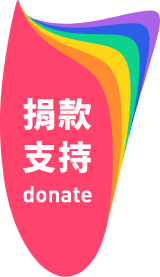The first country in the world to legalize same-sex marriage WongWong’s surprising discovery from her two-month-long internship in the Netherlands
Date: 2024/07/23-08/30
Location: COC, Amsterdam, the Netherlands
Goals: To learn about the international advocacy strategies adopted by other organizations, to identify the progress in LGBTQ+ movements in Europe, and to share Taiwan’s experiences
Outcome: learning about the current situation of the LGBTQ+ movement in the Netherlands (including the rise of the conservative power and the anti-gender movement), exploring the advocacy mechanism of the United Nations, introducing our organization and the advocacy strategies used in Taiwan
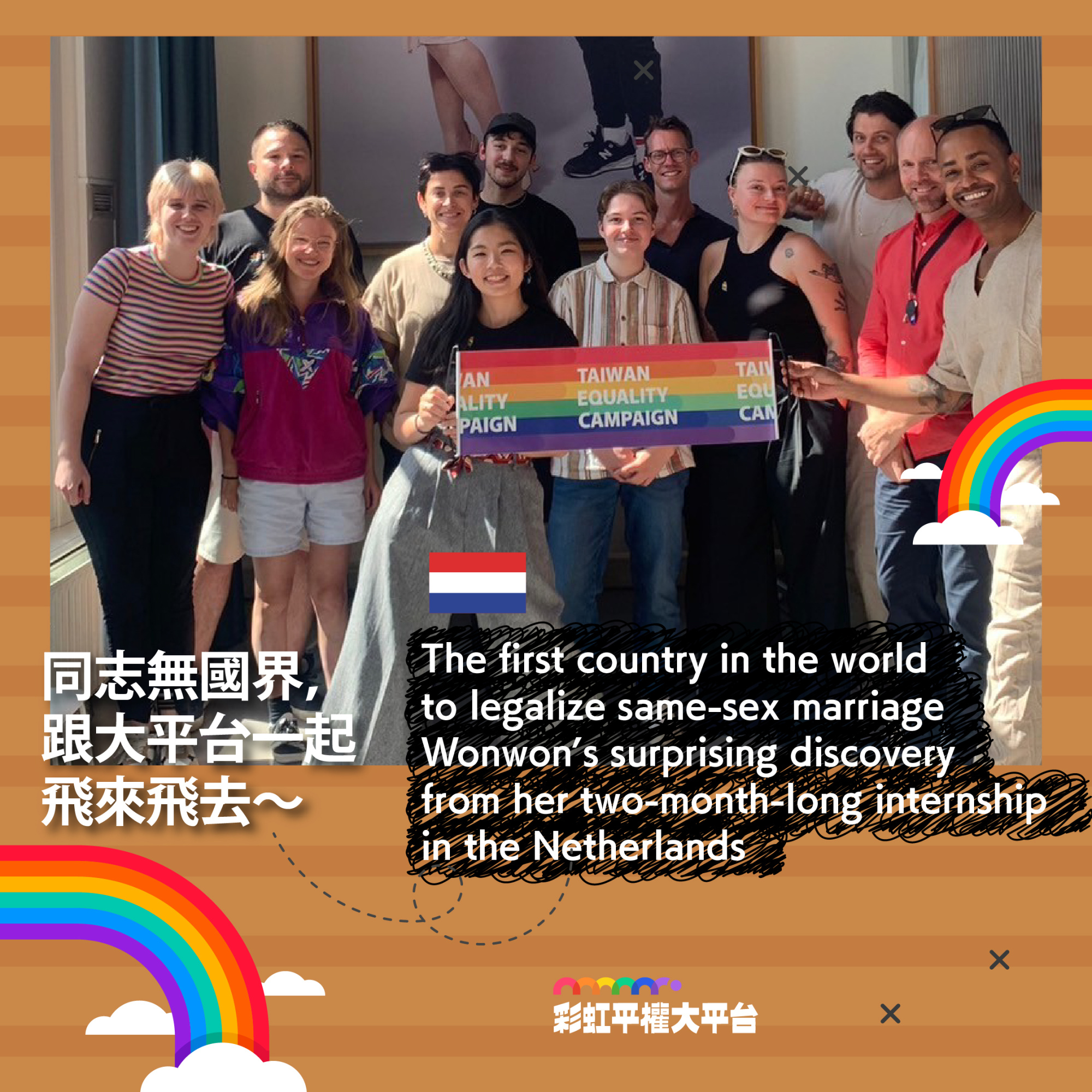
“When I was in the Netherlands, I got a tattoo of a flower on my arm to remind myself to enjoy life outside of work, and to take adventures, to overcome challenges.” WongWong rolls up her sleeves and shows us her tattoo.
TEC’s Advocacy & Civic Engagement Project Manager WongWong spent July and August 2024 on her internship at the international organization COC located in the Netherlands. While experiencing a different culture, she also learned more deeply about the LGBTQ+ issues in the Netherlands and their strategies for international advocacy.
Background to the internship
“Due to our sovereign issue, Taiwan has always faced some difficulties on the international stage. We are a small country, and we are not recognized by the international society, and as a result, we may not be known to the international society.” While lamenting, WongWong nonetheless also suggests in a firm and hopeful tone that as an NGO and a civil group, we can also make a contribution to the aspect that formal diplomacy can not reach and carry out diplomatic work through human rights issues.
Early this year (2024), the Department of Foreign Affairs announced its project of sponsoring NGO workers to undertake internships at foreign NGOs. In order to learn about how NGOs carry out international advocacy work at the United Nations, WongWong applied for an internship at COC in the Netherlands, which is the first LGBTQ+ organization in the world with the longest history and enjoys a consultative status at the UN.
Other than the goal to learn about international advocacy strategies, another reason for her to choose the Netherlands is the language. “In other European countries, one will have to know the local language, but in the Netherlands, I can communicate with others in English.” Also, during the internship, the LGBTQ+ Canal Pride, the first and only in the world, was scheduled to take place in Amsterdam. Furthermore, the Netherlands is the first country in the world to legalize same-sex marriage. In this pioneer country in gender issues, WongWong wanted to explore more deeply the local social atmosphere, the current situation the Netherlands faces and their direction for advocacy.
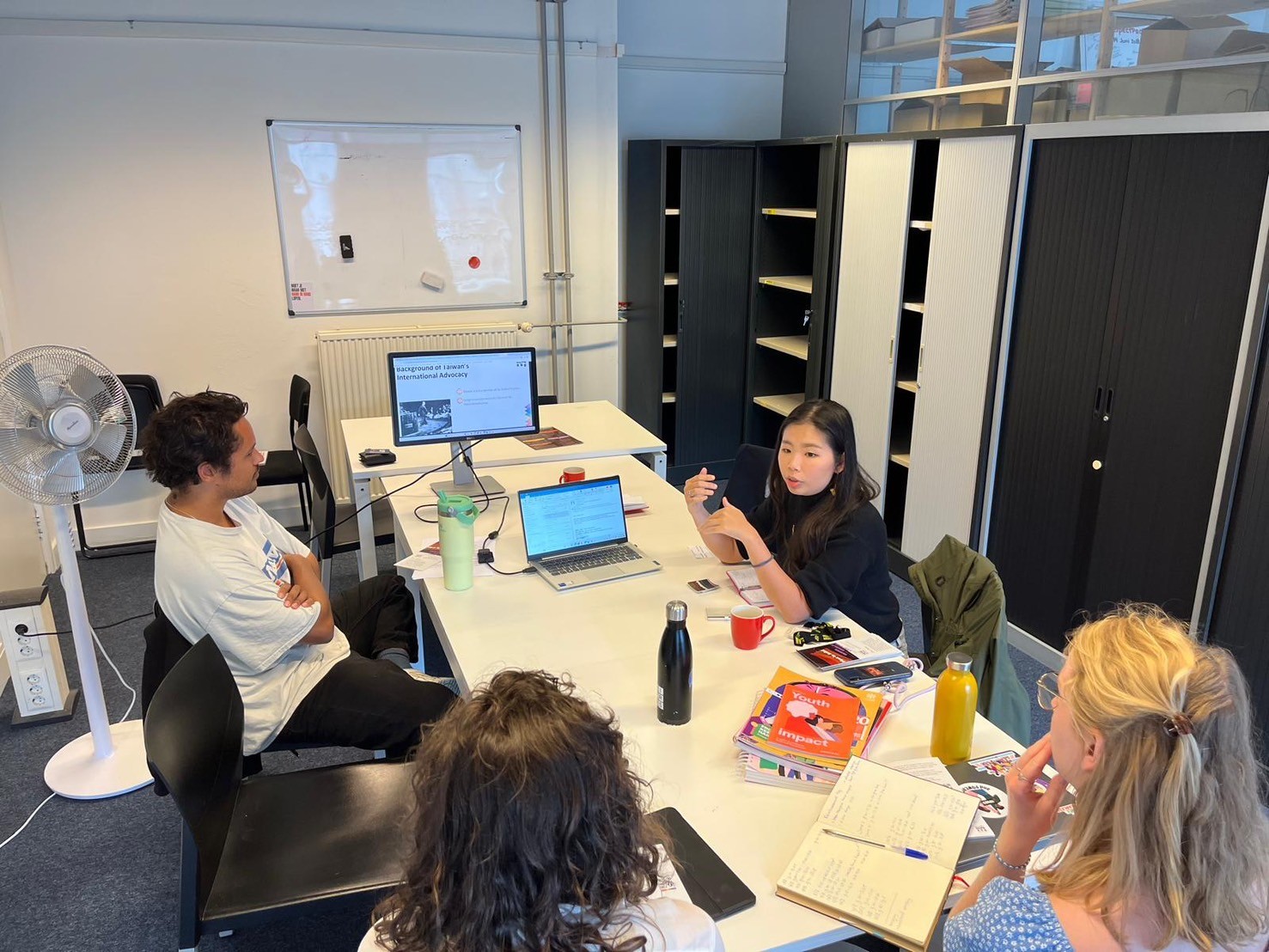
The Netherlands filled with rainbow elements
Prior to the Pride, “One can notice rainbow elements almost everywhere. For example, rainbow flags were hung at metro stations and crossroads, rainbow signs could be seen when checking the timetable at the train station, and advertisements were displayed on the exterior of the trams. Shops even arranged a designated area for relevant products.” It is hard to miss the excitement on WongWong’s face. She mentions that rainbow flags were even seen on the garbage trucks on the day of the Pride.
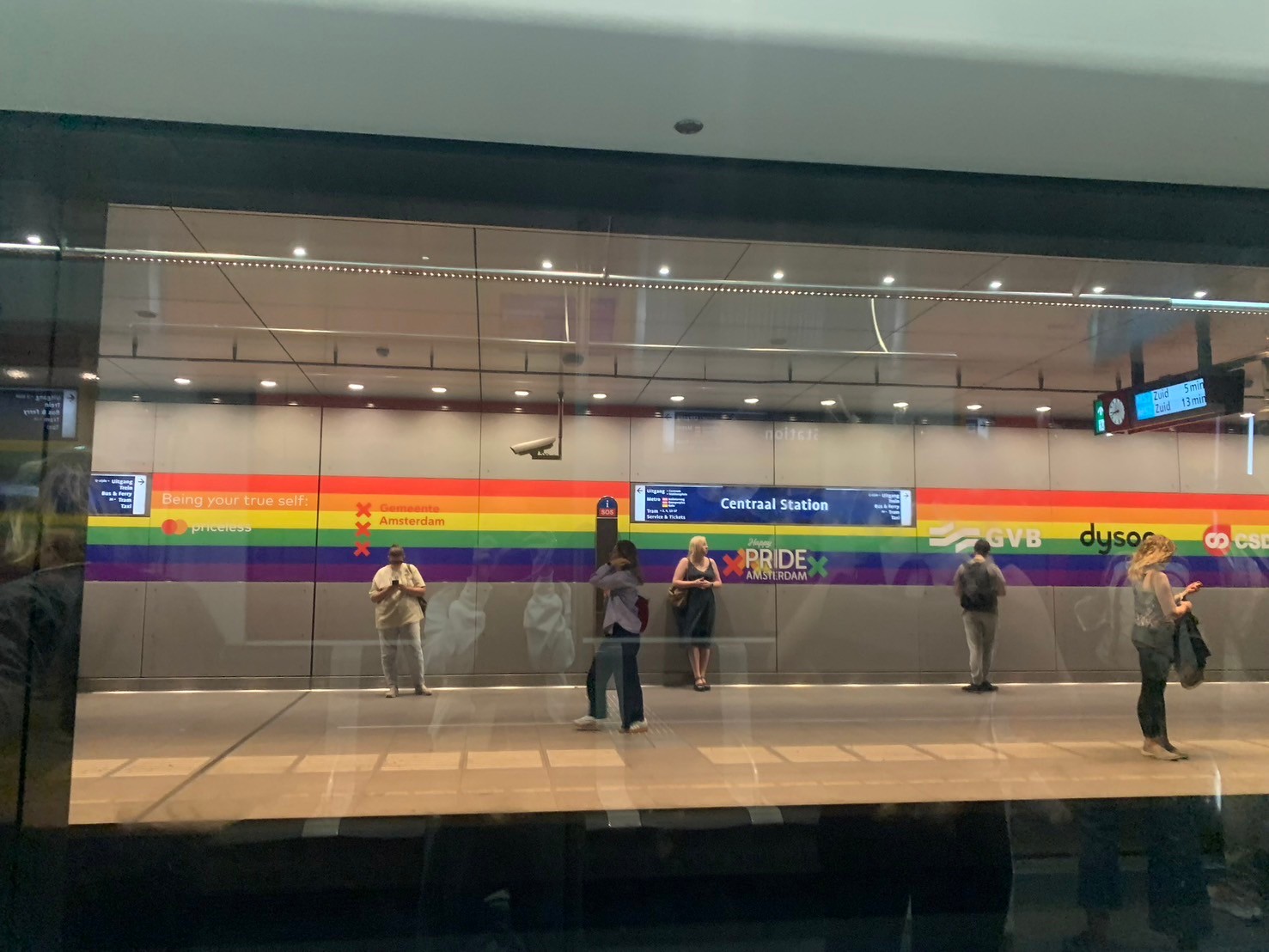
It was very lively on the day of the Pride, and WongWong was on one of the boats traveling down the canals. “I could observe the people on the banks. Everyone dressed up! And there was a rather high percentage of older people attending the Pride. It’s probably because the legalization of same-sex marriage took place in the Netherlands 20 years earlier than in Taiwan.” Some people stood by their windows to wave at the people on the canals, and quite many parents also brought their children to the Pride. It felt like a summer day picnic.
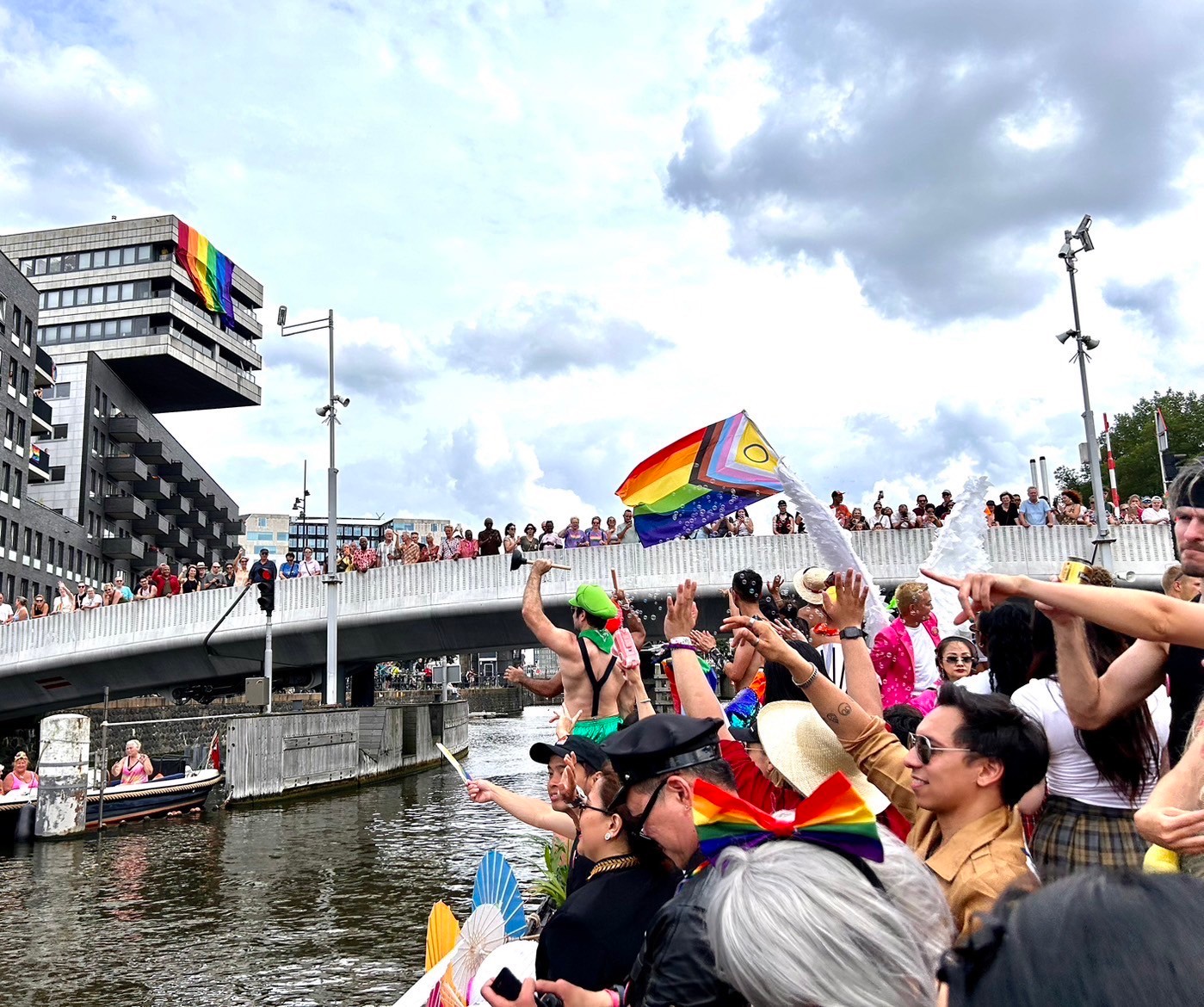
There were also many side events parallel to the Canal Pride. For example, markets were held a week prior to the Pride, and an area dedicated to LGBTQ+ youth was reserved. The police force also set up a stand to give out leaflets, on which it was shared how LGBTQ+ individuals could seek help when being attacked. Perhaps for both the government and the people of the Netherlands, LGBTQ+ issues are nothing but normal. The Dutch government also strongly supports local LGBTQ+ organizations and even assists foreign organizations in growing the LGBTQ+ movement in their individual countries.
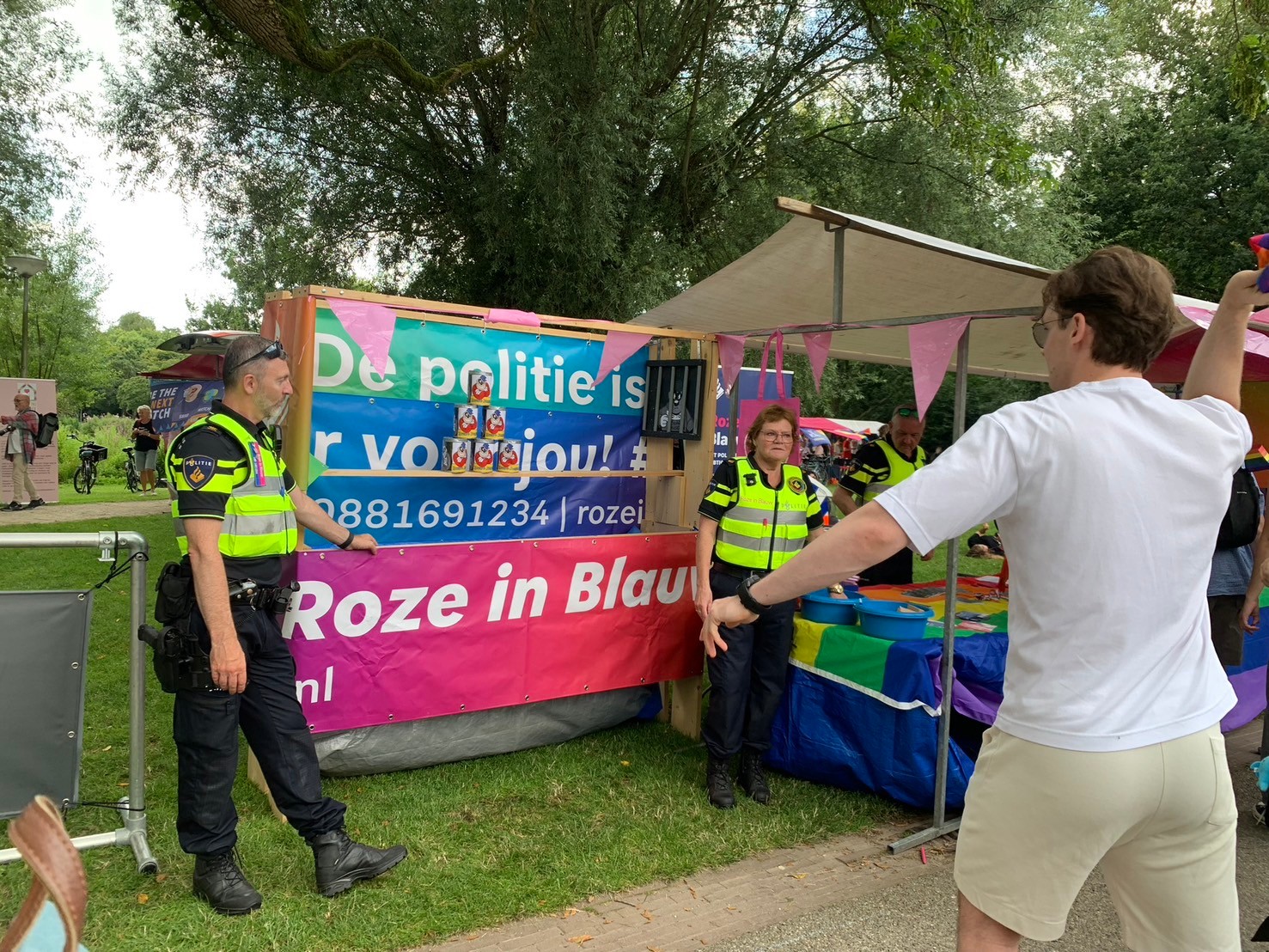
The most memorable thing in the internship in the Netherlands
WongWong explains to us that COC consists of two major departments “domestic advocacy” and “international advocacy.” The Department of Domestic Advocacy is responsible for issues related to education, LGBTQ+ elderlies, lesbians, disabilities, and racial intersectionality while monitoring domestic elections, carrying out political advocacy, and promoting legislative bills. Meanwhile, the Department of International Advocacy is made up of activists from all over the world, highlighting the cooperation with and the monitoring of the diplomatic department of the Netherlands, UN advocacy, and supporting LGBTQ+ activists in other countries. WongWong’s internship was at the Department of International Advocacy.
During her internship, WongWong sat in on meetings and learned about the contents of UN advocacy, such as ICCPR, ICESCR, and the Universal Declaration of Human Rights. Countries that have signed these treaties are required to comply with the principles stipulated in conventions, and the UN has multiple mechanisms to observe if each country indeed implements and executes these principles. The advocacy body at the UN even arranges relevant courses, the topics of which include the advocacy system of the UN, how the meetings are run, and which strategies NGO workers can adopt to influence governments’ decisions, such as shadow reports, speaking up at meetings, protesting outside of meetings and hosting press conferences prior to meetings.
Advocating at the UN is very natural to other countries, but difficult to imagine for NGO workers in Taiwan. “I was filled with frustration and complex emotions in the second half of my internship. Although I was learning how to apply international advocacy strategies, as Taiwan is not a UN member, we can’t make use of this channel. Even more, Taiwanese citizens can not visit the UN with our passport.” WongWong tells us resignedly. Because of this, when WongWong gave her presentation at the end of the internship, she shared with local activists Taiwan’s unique situation: “In the Netherlands, one gets the feeling that Taiwan is like a “queer” itself, who is doubting its own identity and national identity every day: ‘Are we a country or not?” We have to explain over and over again to foreigners that: ‘We are not a part of China,’ or be asked ‘Are we Taiwan or Republic of China?’” This internship was a very important opportunity for her to reflect on how to make Taiwan visible to other countries, and what Taiwan has done on the international stage.
Follow actions post the internship
“Even though the Netherlands has worked on LGBTQ+ issues for such a long time, it still faces a similar situation as Taiwan does, namely, the rise of a right-wing government and the growth of the anti-gender movement and force. Along with the global backlashes of the conservative forces, the right-wing won the election in the Netherlands. Voices against the transgender community start to be heard, LGBTQ+ activities are denied on campuses, hate speeches and crimes increase, and the government budgets for human rights and LGBTQ+ issues are reduced.” Thus, human rights organizations in the Netherlands are actively reflecting on how to overcome these difficulties and prevent the regression of human rights. “The anti-gender government is also observed in Taiwanese society. For example, the conservative forces have enhanced their interference with governmental decisions.” WongWong compares the situations in Taiwan and the Netherlands.
WongWong believes that “democratic countries that value diversity should stand together to fight against the anti-gender movement and come up with coping strategies.” As we share similar situations and the same values, we should form an alliance to replicate our successful experiences and strategies in other countries. As the anti-gender movement becomes an international phenomenon, how Taiwan can collaborate with other countries is a direction for TEC to work on in the future.
Looking at this precious experience of an internship, WongWong wants to organize a session to share her experiences with other people also interested in applying for the internship. She also shares with us some fun facts: “They are so much taller than I am!” The average height of the Dutch people is 183 centimeters, and it is common to see parents who are nearly 190 carrying their children on their backs. Because of her height, the stairs in the Netherlands felt wider to WongWong. She even had the experience of being unable to see her own face in the mirror in a restroom. She had also been mistaken as a teenager.
Also, as a country of flowers, the Dutch enjoy giving others flowers or seeds as a gift. Although she can’t bring back the flowers and seeds, WongWong has packed the memories with her through her tattoo. Looking at the flower tattoo she got during her internship, WongWong reminds herself to “enjoy life, take adventures, and overcome challenges.”
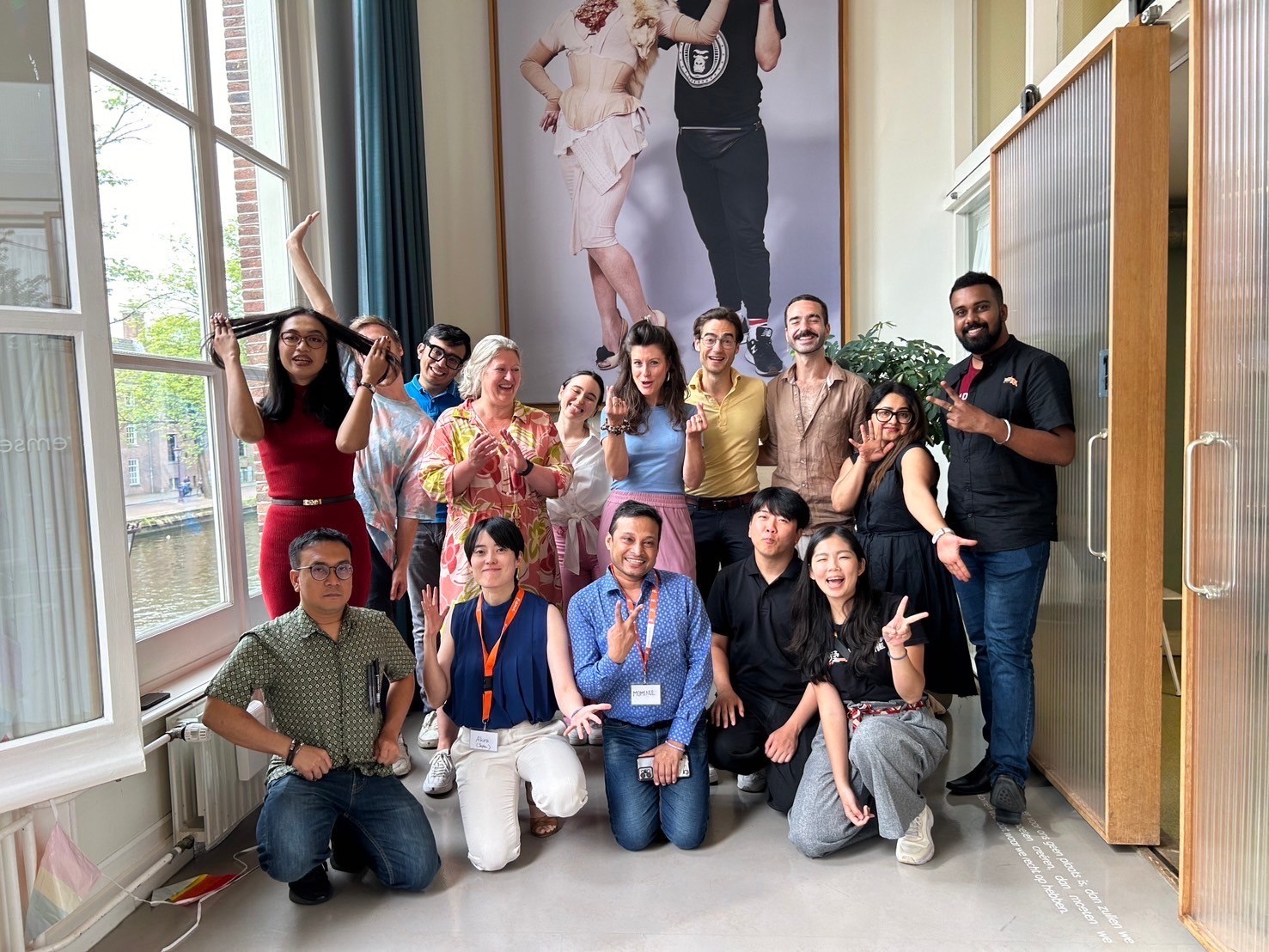
We invite all our followers to help us promote our international projects, pushing Asia towards gender equality.
🌍 Support TEC by making a donation, fostering an active “international society!”

